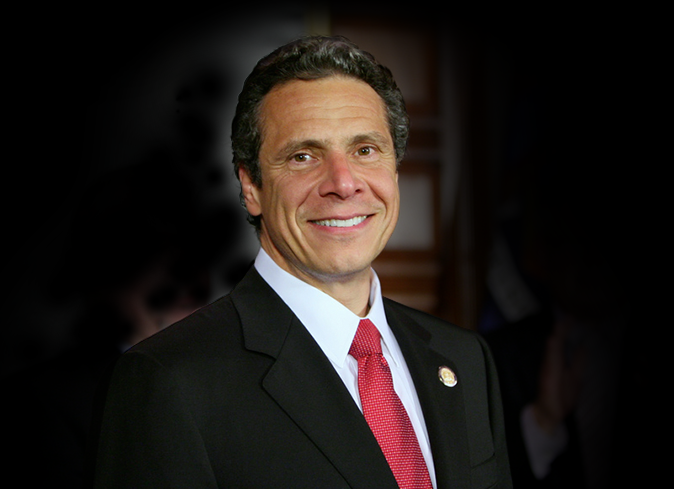Why New York’s MRTA gets an A- & the CRTA gets a C-
by Mary Kruger, Executive Director, Roc NORML; Director, NY NORML
CRTA: C-
MRTA: A-
New York State is set to legalize and regulate cannabis for adult-use, and improve our existing medical marijuana and hemp programs by April 1st with the 2020-2021 NYS Budget. But our work isn’t over yet and we need to fight for SMART legalization now more than ever!
The MRTA (Marijuana Regulation and Taxation Act) was first introduced by Assembly Majority Leader Crystal Peoples-Stokes and Senator Liz Krueger in 2013, and has been re-introduced every session since. The bill has gone through several versions to include improvements through the years, taking what we’ve learned from other states successes and failures, aiming to create the gold standard of marijuana legalization legislation. The bill currently has 22 co-sponsors in the Senate and 43 co-sponsors in the Assembly.
The CRTA (Cannabis Regulation and Taxation Act) was first introduced by Governor Andrew Cuomo with the 2019-2020 budget proposal. It failed to pass with the budget in 2019 due to lack of support from the legislature, and a similar version of the bill was introduced again this year with the 2020-2021 NYS budget proposal.
Late February, a revised version of the 2020-2021 NYS budget proposal was introduced – but disappointingly, no changes were made to the section containing the CRTA.
While neither bill is perfect, NY NORML chapters unanimously agree the MRTA is far superior to the CRTA, and revisions must be made to the CRTA before it is passed into law.
Let’s take a look at some of the key differences between these bills, which have been used to grade each one, resulting in an A- for the MRTA and a C- for the CRTA:
Tax revenue to reinvest into social programs for communities disproportionately harmed from the war on drugs
YES MRTA= % of tax revenue from marijuana legalization is allocated specifically for a Community Reinvestment Grant program.
NO CRTA = claims tax revenue could potentially be used for social programs but no specific money is allocated.
Prevents further criminalization of cannabis consumers for possessing small amounts of illicit marijuana
YES MRTA = possessing illicit marijuana (from an unlicensed source) is a violation with a fine, for up to 2 pounds of flower and 4.5 ounces of concentrate; any amount over these limits can be a misdemeanor, arrestable offense.
NO CRTA = possessing any amount of illicit marijuana is a misdemeanor
Important Note: The Decriminalization Bill passed by Governor Cuomo in 2019 made it so any amount of marijuana flower, up to 2 ounces, is a violation, but the CRTA proposes going backwards to any amount of marijuana from an unlicensed source being a misdemeanor, arrestable offense.
Allows for home cultivation for personal use
YES MRTA = allows up to 6 plants for adult-use, per adult per household, and any amount over that limit is a violation with a fine.
NO CRTA = prohibits home cultivation for adult-use and classifies any amount of plants as at least a misdemeanor. Medical marijuana patients can register with the state to obtain a home cultivation permit, which allows the state to enter a patient’s house at any time for inspection. Medical patients are restricted to 4 plants total, per household. Medical patients are restricted from making any consumable or topical products for personal use from their marijuana plant. If any of these limits are broken, it is at least a misdemeanor, arrestable offense.
Promotes and supports growth and sustainability of small businesses and building diversity and equity in the industry
YES MRTA = creates a multi-tier licensing structure, modeled after the craft beer industry, restricting vertically integrated companies to prevent the creation of an oligopoly in the market. This licensing model allows for multiple points of entry into the system with affordable licensing fees.
NO CRTA = few limitations around current vertically integrated companies in the medical marijuana industry getting licenses in the adult-use industry, which would cripple small businesses from having a chance to compete.
Access to commonly found cannabis products in the regulated market
YES MRTA = keeps commonly found cannabis products on the market legal, keeping current consumers patronizing the legal market.
NO CRTA = aims to regulate potency and types of products available, which will inevitably drive consumers to the illicit market to find familiar products.
Formation of Office of Cannabis Management to oversee the cannabis industry and regulations
YES MRTA = all members are appointed by the Governor, pending legislative approval, providing checks and balances for the people being chosen to hold these positions.
NO CRTA = all members are appointed solely by the Governor and the legislature has no control over the people chosen to hold these positions.
Affordable tax rate
NO MRTA
NO CRTA
Neither bill offers affordable tax rates. At the current proposed tax rate, which is the same in both bills, it is estimated an eighth of flower will cost anywhere from $60-$70. This is unacceptable and will destroy the chance of building small, craft cannabis businesses.
Adequate improvements to the medical program
NO MRTA
NO CRTA
Neither bill offers adequate improvements to the medical marijuana program. At the very least, improvements must include the addition of flower into the medical marijuana program, tax exempt medical marijauna products until insurance companies begin to cover the medicine, and reciprocity granted to patients certified in other jurisdictions.
Legalization in NYS has 3 main goals:
Address decades of harm caused by marijuana prohibition
Create a regulated market so cannabis consumers have access to affordable, safe products
Create a new source of tax revenue for the state
When we look back at some of the key things we’ve learned from the states that have legalized before us is over-regulation and over taxation is what has been most damaging to this budding industry.
If NYS wants to accomplish any of the 3 goals that have been set, we need our leaders in Albany to learn from the mistakes made by other states, and revisions must be made to the CRTA before it can be passed into law.
All month long, until March 31st, we need everyone to be calling, emailing, tweeting, and meeting with our leaders in Albany to urge them to make changes to the proposed legalization bill.
1. Use this action alert to send an email to the Governor and Speakers of the Assembly and Senate
2. Use this form to sign up for our March 24th state wide lobby day
3. Use the phone numbers and script below to call them and help us ring their phones off the hook in response to the anti-legalization lobby day happening today:
Governor Cuomo: 518-474-8390
Speaker Heastie: 518-455-3791
Leader Stewart-Cousins: 518-455-2585
“My name is (your name), a constituent from (your city). I am a supporter of Start SMART NY and NORML, and I want to urge you to support legalization in the budget, but the bill as it stands today must have changes made. The Marijuana Regulation and Taxation Act (Senate Bill 1527/Assembly Bill 1617) is the bill to look at for guidance on changes that are needed to the Cannabis Regulation and Taxation Act (the bill included in the Governor’s budget proposal). The most important changes needed to the CRTA include:
Allocating a specific % of tax revenue to reinvest into social programs for communities disproportionately harmed from the war on drugs;
Preventing further criminalization of consumers for possessing small amounts of illicit marijuana;
Allowing for home cultivation of cannabis for personal, adult-use;
Promoting and supporting the growth and sustainability of small businesses and building diversity and equity in the industry;
Access to commonly found cannabis products in the regulated market with a goal of keeping current consumers patronizing the legal market;
Formation of the Office of Cannabis Management to oversee the cannabis industry and regulations, with checks and balances provided through legislative approval;
Affordable tax rate; and
Adequate improvements to our medical program
New Yorkers are tired of waiting for legalization but we won’t accept legalization at any means necessary. We urge you to listen to the recommendations being made by members of the Start SMART NY alliance and make these important changes to the CRTA before it is passed into law.


